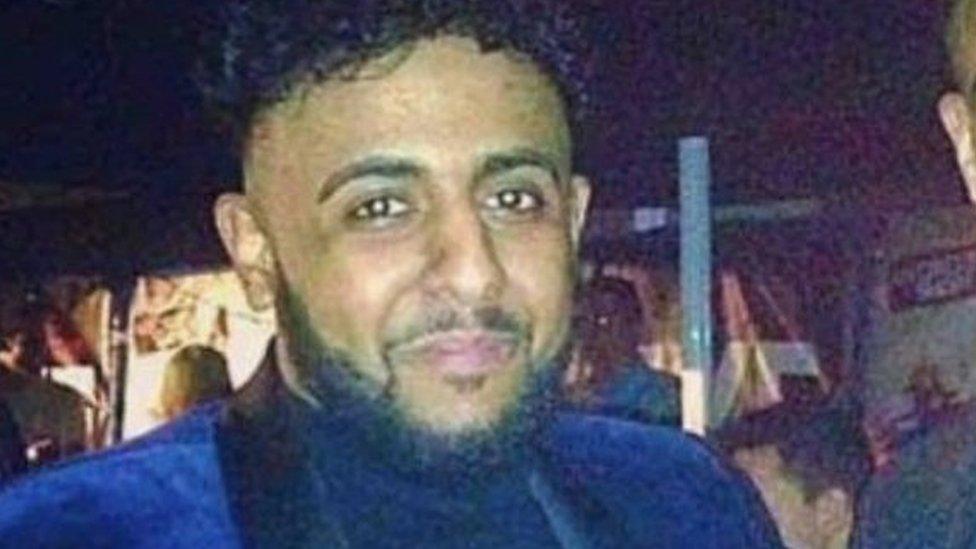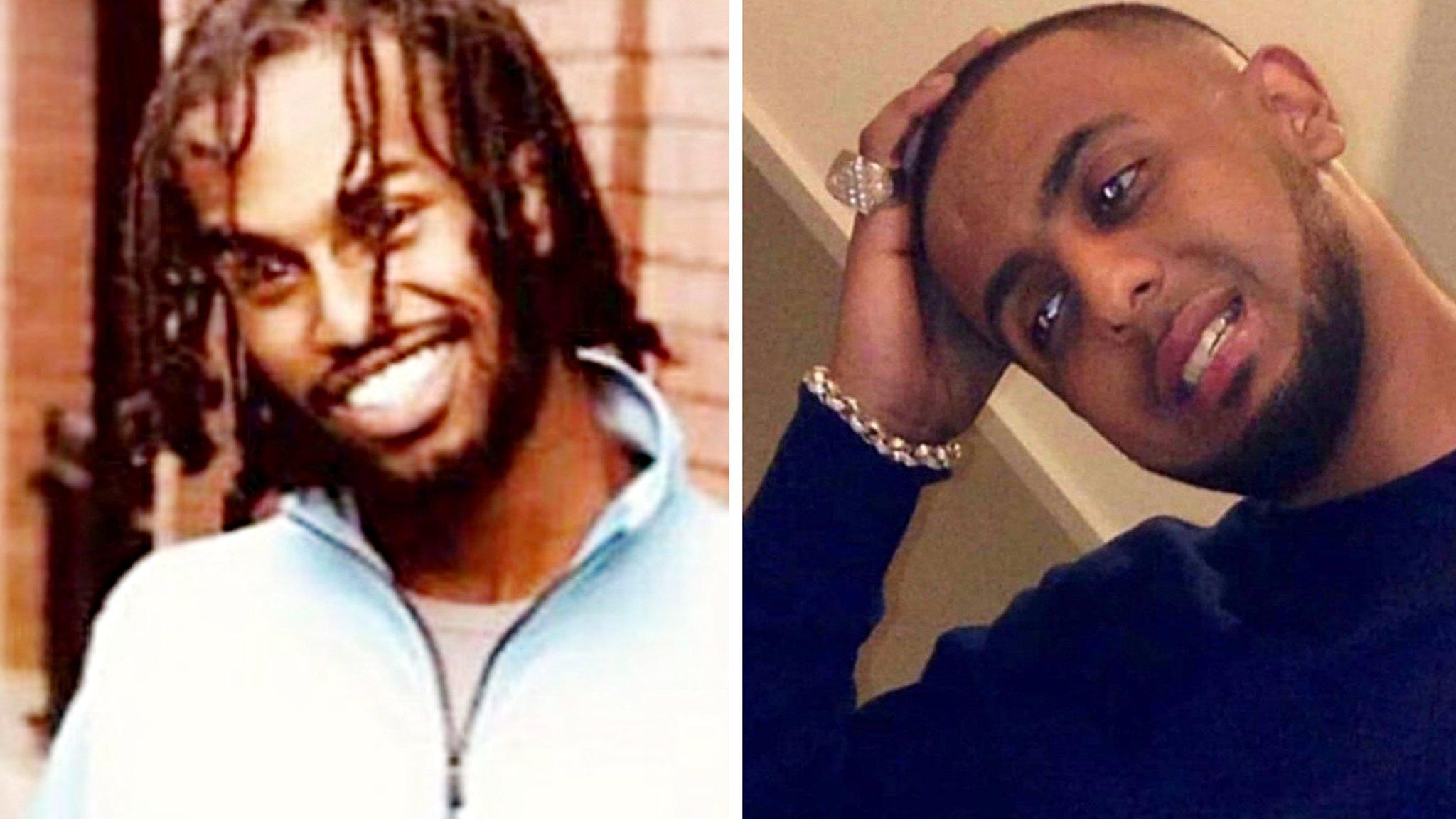Mouayed Bashir: Mix of drugs found in system, inquest is told
- Published

The 29-year-old died after being restrained by police his parents' home in Newport in 2021.
A man who died after being restrained by police had cocaine, diazepam and a substance found in cannabis in his blood at the time, an inquest has heard.
Mouayed Bashir, 29, died in hospital after officers and paramedics attended his parents' home in Maesglas, Newport in 2021.
An inquest in Newport is examining the events that led up to his death.
Jurors heard there were 35 new and older bruises on his body.
Forensic scientist Lindsey Ward, who analysed Mr Bashir's blood after his death, said the concentration of cocaine in his blood was in line with "chronic or heavy" use.
She said it was higher than that seen with recreational use, but could not say whether it was in the range that could have caused a toxic overdose.
Potential toxic effects of cocaine were a raised temperature and "cardiac issues", she said.
Diazepam and naloxone were also found, and she explained that diazepam "can slow breathing", while naloxone is administered "to reverse opiate-induced symptoms".
Jurors previously heard that Gwent Police officers found Mr Bashir barricaded in his room before he was restrained.
He later suffered a cardiac arrest while being transferred to hospital, and the inquest is considering the care he received at his home and on route to hospital.
No evidence of a 'chokehold'
Jurors previously heard Mr Bashir's parents called the emergency services in February 2021 because of a health episode.
Pathologist Dr Derek Simon James carried out the postmortem examination and said there were 35 bruises on his body, some old and some new.
He said some suggested someone had restrained and had "grip" of Mr Bashir, but added "none of them suggest a significant blow".
He said there was no evidence of a "chokehold" or prolonged grip around his neck.

Mr Bashir was restrained by police his parents' home in Newport in 2021
He said he believed Mr Bashir's death was not caused by any underlying natural causes, and that he was suffering from acute behavioural disorder as a result of cocaine use.
The jury was shown a police training video which described the disorder as a state of extreme agitation, which can sometimes give people "super human strength" and the ability not to feel pain.
The video explained that any restraint or pinning of the muscles could lead to respiratory failure.
Dr James said significant and prolonged cocaine use can affect parts of the brain that control breathing, heart rate and blood pressure.
He also explained that the toxic effects of cocaine use can result in increased oxygen demand.
He said if someone is suffering from extreme agitation or paranoia because of cocaine use the presence of the police or emergency services could add stress, even if they are trying to calm things down.
But he said it was "very difficult" to weigh up those effects.
Dr James added: "If someone is put into a position that seriously impedes breathing, it's obviously going to have an effect".
"Any further struggle makes things worse."
Dr James said there was no physical injury from the restraint of Mr Bashir that caused his death.
However, he said because of the state Mr Bashir was in, anything that would have raised his temperature "is probably contributing something".
The inquest continues.
Related topics
- Published24 January 2022

- Published15 January 2024
